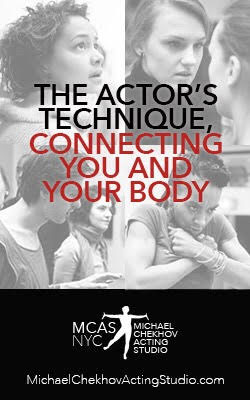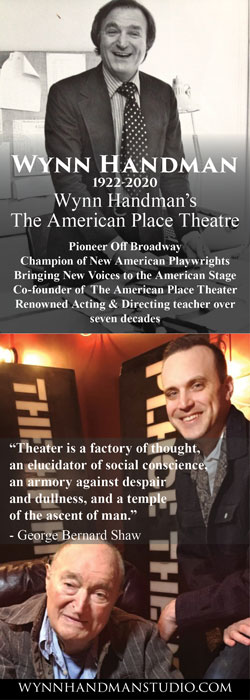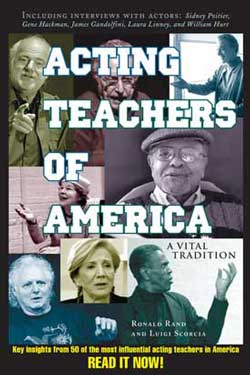Charleston Stage at Dock Street Theatre-America’s First Theatre
Charleston Stage was founded in 1978 by Julian Wiles, Producing Artistic Director, designer, and playwright Julian Wiles, located in Charleston, South Carolina. Charleston Stage has become South Carolina's largest professional theatre company in residence at the Historic Dock Street Theatre.

Historic Dock Theatre, Charleston Stage, Charleston, S.C.
In residence at the Historic Dock Street Theatre, Charleston Stage has presented over a hundred and fifty productions, bringing great drama, literature and history to over 20,000 young people in the Lowcountry each year.
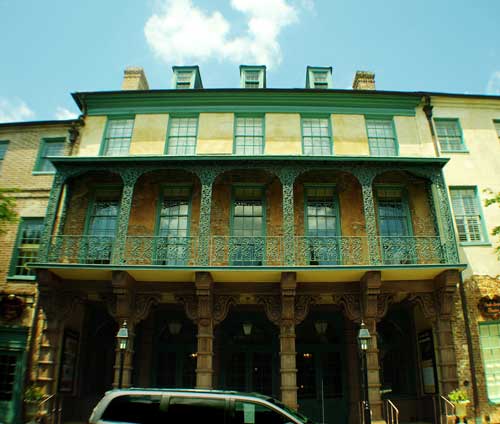
Historic Dock Theatre, Charleston Stage, Charleston, S.C.
For more than forty years, Charleston Stage has premiered thirty-one new plays and musicals, with a commitment to new works, especially shows that celebrate the rich culture and history of Charleston and South Carolina. Recent world premieres include “Gershwin at Folly,”which told the story of the genesis of Porgy and Bess, and “The Seat of Justice,” exploring South Carolina’s pivotal role in the landmark Brown vs. Board of Education Supreme Court decision.
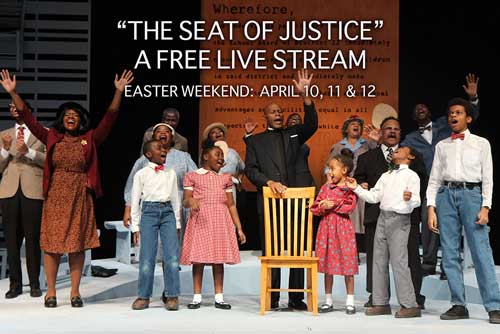
“The Seat of Justice,” an original play by Charleston Stage Founder, Julian Wiles, Charleston Stage
Charleston Stage, the resident professional theatre at the Dock Street Theatre in 1978 is located at America’s First Theatre. An historic moment took place in American theater history. On February 12th, 1736, on February 12th, a performance of “The Recruiting Officer” at the Dock Street Theatre took place.
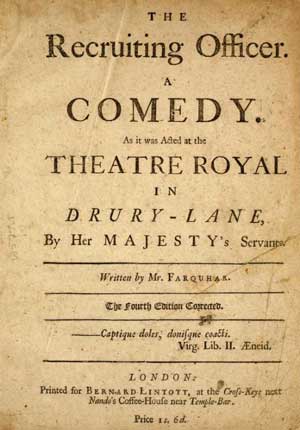 Built on the corner of Church Street and Dock Street (now known as Queen Street) in the French Quarter neighborhood, the Historic Dock Street Theatre was the first building in America built exclusively to be used for theatrical performances. It is also little known but the first opera performance in America, “Flora,” took place at the Historic Dock Street Theatre.
Built on the corner of Church Street and Dock Street (now known as Queen Street) in the French Quarter neighborhood, the Historic Dock Street Theatre was the first building in America built exclusively to be used for theatrical performances. It is also little known but the first opera performance in America, “Flora,” took place at the Historic Dock Street Theatre.
The original Dock Street Theatre was probably destroyed by the Great Fire of 1740 which destroyed many of the buildings in Charleston’s French Quarter. In 1809, the Planter's Hotel was built on this site, and in 1835 the wrought iron balcony and sandstone columns of the Church Street facade were added.
A number of notable persons worked at and patronized the Planter’s Hotel including the noted 19th Century actor Junius Brutus Booth (father of the great actor, Edwin Booth and John Wilkes Booth). Robert Smalls, an African-American Civil War hero, who stole a steamboat in the harbor and sailed it out past the Confederate-held Ft. Sumter and turned it over to the blockading Union Fleet, served as a waiter in the hotel’s dining room prior to the war.
Junius Brutus Booth as Sir Edward Mortimer
by John B. Neagle, National Portrait Gallery
 It was also at the Planter’s Hotel Charleston's famed Planter’s Punch was first introduced. After the Civil War, Planter’s Hotel fell into disrepair and was slated for demolition.
It was also at the Planter’s Hotel Charleston's famed Planter’s Punch was first introduced. After the Civil War, Planter’s Hotel fell into disrepair and was slated for demolition.
But in 1935, after Milton Pearlstine made the property available to the City of Charleston and at the urging of Mayor Burnet Maybank and other notable citizens, the original building became a Depression Era WPA (Works Progress Administration) project. At that time, the present theatre was constructed within the shell of the Planter's Hotel. The hotel’s grand foyer became the grand foyer of the theatre and the hotel’s dining room now serves as the box office lobby.
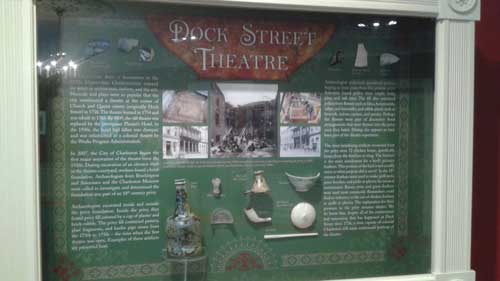
Display at Historic Dock Theatre, Charleston Stage
The beautiful woodwork and mantels of the second-floor drawing room were salvaged from the Radcliffe-King Mansion (circa 1799) which stood at the corner of George and Meeting Streets and was razed to build the College of Charleston gymnasium, another WPA project.
Modeled on eighteenth century London playhouses by Charleston architect Albert Simons, the present Dock Street Theatre's new stage house and auditorium were built in the hotel’s courtyard. The local carpenters who were put to work as a part of this Depression era relief effort utilized locally grown and milled native black cypress for the beautiful warm wooden interior. Following this $350,000 renovation, The Historic Dock Street Theatre's second grand opening took place on November 26, 1937. Notables in the audience included author DuBose Heyward (Porgy) who was named writer-in-residence.
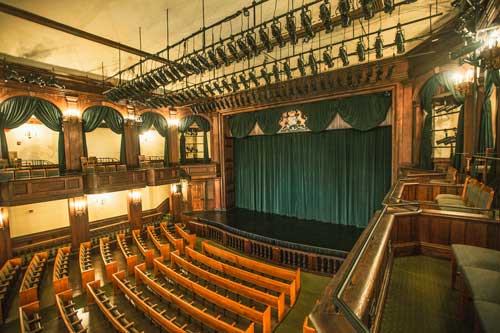
Interior of Historic Dock Theatre, Charleston Stage, Charleston, S.C.
In 2010, The Historic Dock Street Theatre reopened for the third time after a three year, nineteen-million dollar renovation by the City of Charleston. Now owned and managed by the City of Charleston, the Historic Dock Street Theatre is home to many of the City’s finest cultural institutions including Spoleto Festival USA and Charleston Stage. For several years, more than fifteen thousand South Carolina students have enjoyed special school day performances offered by Charleston Stage at the Historic Dock Street Theatre.
Producing Artistic Director Julian Wiles has directed and designed more than two hundred and fifty productions and penned thirty-one original plays and musicals for the company including “the boy who stole the stars,” “Nevermore! Edgar Allan Poe,” “the Final Mystery,” “The Seat of Justice,” “Denmark Vesey: Insurrection,” “Gershwin at Folly,” “Helium,” and “Inga Binga.” Seven of his plays have been published by Dramatic Publishing and produced around the country. Mr. Wiles is a recipient of the 2010 Elizabeth O'Neill Verner Award, the highest honor in the arts awarded by the South Carolina Arts Commission, and was inducted into the South Carolina Theatre Association’s Hall of Fame in 2018.
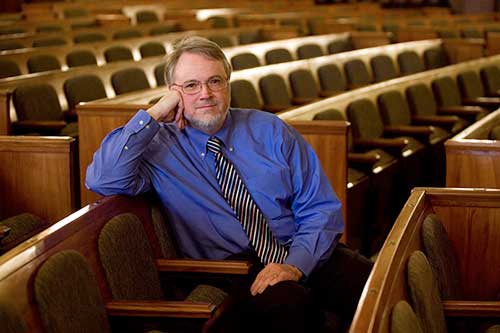
Founder and Producing Artistic Director, Julian Wiles
Artistic Director and Director of Education, Marybeth Clark has taught and directed for Charleston Stage part-time beginning in 1997, before joining the company full-time the following year. In her time at Charleston Stage, she has directed sixty-seven shows during their seasons, most recently “Of Mice and Men,” “Mamma Mia!,” “Beauty and the Beast,” and “Footloose.”
Each summer Ms. Clark has directed Charleston Stage’s SummerStage Musical Theatre Camp for more than eighty young people. Recent productions have included Disney’s “The Jungle Book,” “Seussical Jr.,” “Aladdin JR,” Disney’s “Aristocats “KIDS,” and “Beauty and the Beast JR.” As an actor for Charleston Stage, Marybeth has appeared in “Shakespeare in Love,” “Helium,” “You Can’t Take It with You,” “The Marriage of Bette and Boo,” “Steel Magnolias,” and “A Christmas Carol.”
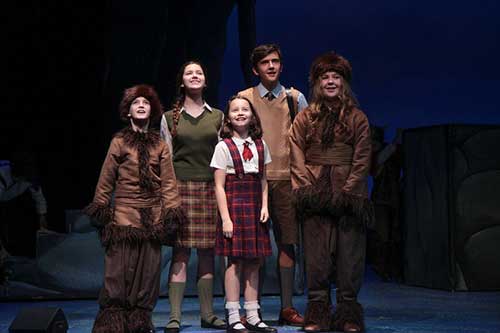
Charleston Stage Performance Troupe Members in “The Lion, The Witch and the Wardrobe.”
Charleston Stage has one of the oldest and largest arts education programs for young people in the region, led by Marybeth Clark, Sam Henderson as Resident Music Director and Director of Music Education, and Jesse Siak as Associate Director of Education.
Arts education has always been a cornerstone of Charleston Stage's mission. Their education programs include special low-price performances for over nineteen thousand school students each season, an after-school Theatre School program, providing theatre training for over three hundred and fifty students each year.
Charleston Stage also created their TheatreWings Apprenticeship Program, a pre-professional theatre training program for outstanding high school students, and ArtReach Workshops, which are led by members of Charleston Stage’s Professional Resident Acting Company, bringing the magic of theatre to schools throughout the state.

“The Little Mermaid” at Charleston Stage
Charleston Stage’s Theatre School classes are taught by seven full-time professional actors who make up the Resident Acting Company. These actor/educators join Charleston Stage for a ten-month artist-in-residence and teacher training program. They perform in leading roles throughout the season while also teaching youth theatre classes and ArtReach Workshops in local schools. They include: Molly Burris, Katelyn Crall, Logan Edris, Julia Kelly-Davis, Asa Stallings, Mason Anthony Stevens, and Drew H. Wells.
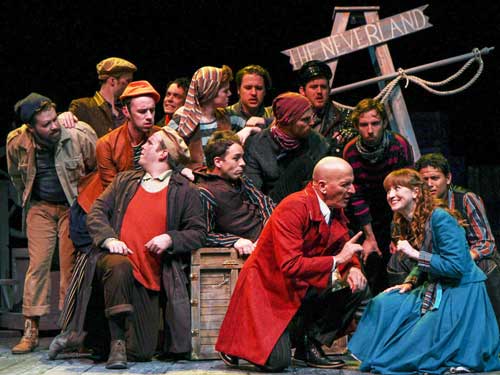
“Voyage into the Netherworld” at Charleston Stage
Charleston Stage’s 2019-20 Acting Ensemble performing in leading roles throughout at the Historic Dock Street Theatre include Lara Allred, Aaron Andrews, Samille Basler, Letty Clay, Marybeth Clark, Victor Clark, Rylee Coppel, Liz Duren, Chad Estel, David Loar , Melonea Marek, Anthony T. Matrejek, Derek T. Pickens, Ryan Pixler, Andrea Rausch, Teralyn Reiter, Cody Rutledge, Maggie Saunders, and Jesse Siak.
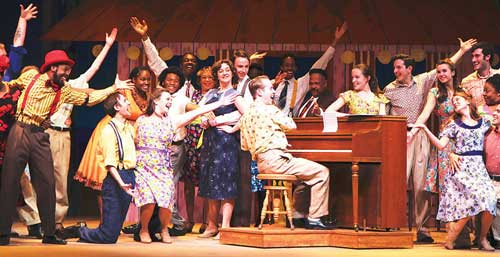
Charleston Stage also launched West Ashley Theatre Center, a ten thousand square foot exciting new theatre facility which includes two dance and rehearsal studio spaces, and a 130-seat performance space known as “The Pearl” or the Pearlstine Theatre in recognition of a very generous $250,000 lead gift to Charleston Stage from the Pearlstine Family.
Charleston Stage’s 2019-2020 season included “Hank. Jr.”/ “Oklahoma” (Summer Stage), “Footloose,”“Voyage into The Netherworld,” “The Best Christmas Pageant Ever,” “Elf: The Musical,” “The Lion, The Witch and the Wardrobe,” “Our Town” and “Noises Off.”
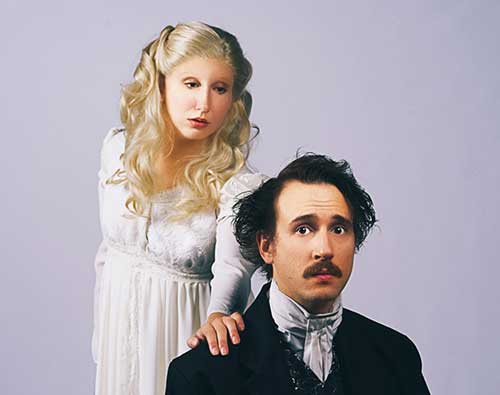
“Nevermore! Edgar Allan Poe” at Charleston Stage
Upcoming 2021 Season is scheduled to include “Charlotte’s Web” (Jan. 23,24, 30), “Patsy Cline” (Feb. 3-21), “Murder on the Orient Express” (Mar. 3-21), “Kinky Boots,” (Apr. 13-May 2), and “Bright Star” (June 23-July 11). For info: Charleston Stage 2020 Charleston Stage, PO Box 356 Charleston, SC 29402, box office: 843.577.7183, www.charlestonstage.com







































